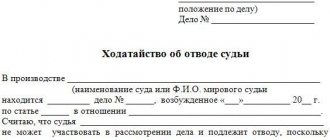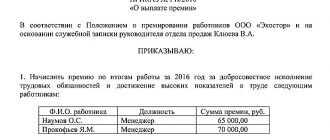Interrogation and interrogation - what's the difference?
There are no intimate conversations with police officers and prosecutors. If you have been summoned under a subpoena, you will either be questioned or interrogated.
The interrogation is carried out as part of a criminal case, and the interview is for verification purposes.
It is not necessary to answer the questions asked during the survey - it is purely voluntary. However, no matter what lies ahead, it is better to go to the police accompanied by a lawyer.
By the way, a similar difference exists between a search and an inspection of the premises. The search is carried out within the framework of a criminal case, in the presence of a warrant and in the presence of witnesses. Police officers can even knock down the door, and this will be within the law.
An inspection (inspection) of the premises does not require a warrant, but you have every right not to allow police officers into your territory at all. They have no right to break in by force, so stand your ground.
Rules of conduct for judicial officers
The responsibility of maintaining the rule of law on the territory of the country lies on the shoulders of the employees of the judiciary, within which they are obliged to:
- Regardless of the specific situation, always place the principle of the rule of law and the rights of citizens at the forefront;
- The employee must be a professional in his field and thoroughly know all the necessary legislative framework;
- When performing his official duty, the employee must demonstrate self-confidence and calmness. With all his appearance he must support the reputation of the judiciary in Russia;
- While performing his duties, the employee must not in any way create obstacles to other participants in the meeting;
- You should not let your personal beliefs and stereotypes influence the judicial process;
- Citizens must be treated with respect, by name and patronymic;
- Avoid discrimination based on various criteria (gender, age, religion, etc.)
Everyone who appears at the hearing must know how to behave in court. You cannot interrupt participants in the process, insult them, or show disrespect for government officials. If you comply with all laws and standards of decency, you can be confident of your victory.
Legal basis
If a person (guilty or innocent, it doesn’t matter for now) is pointed out by a victim or witness to a crime, he must be interrogated within 24 hours from the moment of arrest.
Before the interrogation begins, the suspect must be provided with a meeting with a lawyer, and in conditions of confidentiality. A lawyer can be either specially hired or provided by the state. The difference, unfortunately, is big: government lawyers for the most part approach the case formally, and are of little interest to the fate of their clients.
The interrogation is conducted by an investigator or interrogating officer. Moreover, if the person being interrogated is assigned the status of a suspect, the presence of a lawyer is mandatory. Listen to your defense lawyer, carefully record all procedural nuances and violations - in the future this can act as a trump card in court.
No one has the right to force anyone to testify against themselves, their spouse or a close relative - this is written in the Constitution of the Russian Federation.
If a survey is being conducted, you can simply refuse to answer the questions.
In the future, after consulting with a lawyer, you can ask to be interviewed again, and the investigation will be required to repeat the procedure.
Actions of a lawyer in court when the prosecutor reads out the testimony of witnesses
Quite often, prosecutors read out the testimony of witnesses that they gave during the preliminary investigation, citing contradictions.
For what? As a rule, the testimony given by witnesses during the preliminary investigation is more complete and meets the interests of the prosecution.
Why? Because witnesses to the investigation are simply intimidated; often the investigators themselves write protocols, which the witnesses only sign.
What should a lawyer do in such a situation?
In such a situation, the lawyer should always object something like this: “Announcement is allowed in a strictly defined number of cases, and not always when the prosecutor requested it. Of the two investigations (preliminary and main), the judicial one determines the outcome of the case. This means that priority should be given to testimony given in conditions of openness and publicity at the trial, rather than testimony obtained in conditions of secrecy that prevail at the preliminary investigation. There are two different situations when the testimony of a witness during the investigation did not pass public judicial scrutiny or when pressure could actually be exerted on the witness to change his testimony.”
What is the point of reading out the testimony of a witness?
So, what is the point of reading out the testimony of a witness? Revealed inconsistencies in the testimony of a witness must be eliminated through adversarial interrogation in the conditions of publicity and openness that exist during a court hearing under the control of the presiding officer, designed to ensure this adversarial nature. And the testimony of a witness given during the preliminary investigation can take precedence over his own testimony given in court only if there is reliable information about the witness’s deliberate distortion of the factual picture of the circumstances examined by the court. In other cases, priority should be given to the information that was given by the witness in court.
The prosecutor usually refers to the existence of significant objections. A lawyer in such a situation should react something like this: “Dear procedural opponent, please highlight and identify those significant contradictions so that the court can make sure that they are truly significant. Please identify these contradictions. To do this, it may not be necessary to read the entire protocol, but just read two or three lines.”
But here it is important to understand something else. The prosecutor will always try to read the entire document. He needs this so that from the beginning he gets into the protocol of the court session, and then, accordingly, into the court verdict. The judge, of course, will let the prosecutor read everything out. Because the investigation does not look for irrefutable evidence and does not examine the testimony of false witnesses and neutral persons. The main thing is more in number. What's the output? And the outcome may turn out completely different than what the prosecution planned.
Remember the main thing - the investigator is not your friend
You need to understand that you are unlikely to get sympathy from the investigator. You are on opposite sides of the barricades: his task is to solve the crime, send the case to court and improve the results, yours is to protect yourself and at least not worsen the situation.
Politeness, ostentatious sympathy and other psychological techniques are just tools that make it easier to take testimony. And this does not mean that all investigators and interrogators are bad people who want to quickly send you to prison. Their job is to investigate crimes and send the people who committed them to places that are not so remote, but definitely not very pleasant to live in.
General judicial provisions
Regardless of which side a person represents at the meeting, he must adhere to the following rules:
- By all means one must adhere to generally accepted standards of decency. Even if the opposing party allows itself to be provoked, the only thing that can be done is to seek protection from a judge;
- Unauthorized remarks out of turn, loud conversations with neighbors, and interrupting opponents are prohibited. Repeated violation of the rules entails a fine;
- If you discover false information, you should point this out to your lawyer;
- You should not try to manipulate the emotions of meeting participants. In the vast majority of cases, such attempts lead to the exact opposite result;
- Even if it becomes clear that the scales are tipping in the opposite direction, you cannot react emotionally to this. If the hysteria is particularly severe, the judge may insist on an examination;
- Particular respect must be shown to the referee. It is necessary to fulfill all his demands without unnecessary comments.
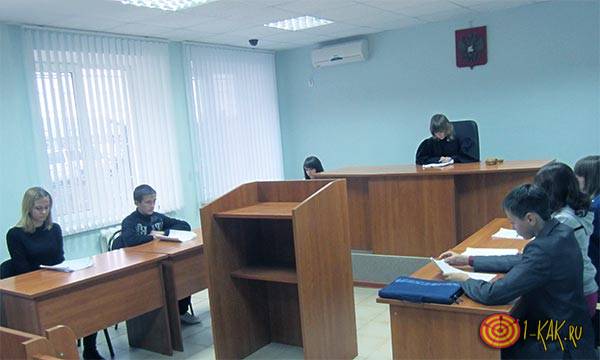
In this video, lawyer Taras Yusupov will tell you how to behave in court during civil, criminal or administrative cases:
Progress of the interrogation
The first interrogation is usually quite formal:
- The identity of the suspect is being established.
- The rights and obligations, the nuances of the procedure in accordance with Article 189 of the Code of Criminal Procedure of the Russian Federation are explained (we recommend studying it in advance).
- The interrogated person, at the request of the investigator, talks about what happened.
- The investigator or interrogator asks questions.
You have the right to use any documents and your own recordings, and ask for an audio or video recording of the interrogation.
Testimony can be given both orally and in writing, and the investigator does not have the right to refuse the suspect a handwritten description of the events.
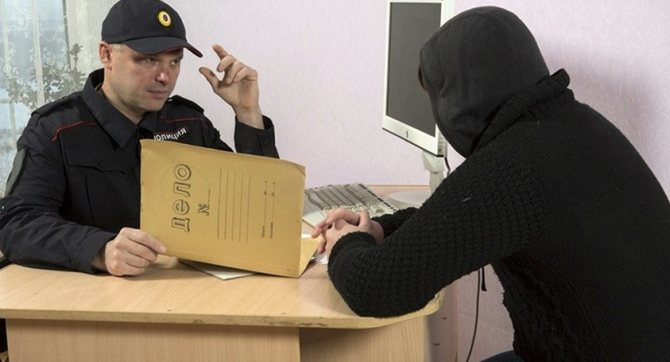
Accused or defendant - how to behave in court
To begin with, this position is more disadvantageous than the position of the plaintiff, since it is always easier to blame than to defend. This means that you need to approach your defense as responsibly as possible.
Discuss your strategy with your lawyer in advance. Also, first study all the materials of the case; perhaps you will be able to provide refutations of what you are accused of. An experienced human rights defender most likely knows what the judge will be interested in, so he can come up with answers to basic questions with you in advance. Otherwise, there is a risk that the defendant will become confused and nervous, and in this state it is easy to make a fatal mistake and derail the entire defense.

Before appearing in court, the accused must prepare with a lawyer
During your speech, focus on the facts, try to prove that you are right, justify your disagreement with the accusations, but do not go on the offensive. Do not get into arguments with the plaintiff's lawyer, the plaintiff himself, and especially not with the judge. Make sure that your speech does not contradict what you said earlier.
If you did not hear or did not understand the question asked to you, you are allowed to ask again or ask for clarification. In other cases, you should not ask questions to the judge or the other party.
Maximum preparedness, handling facts and appealing to legislative acts are your best assistants in the fight for your own innocence.
Interrogation Techniques
The investigator’s task is to bring the suspect to light, to force him in any way to testify, to get him to talk. This is achieved through various methods, including psychological pressure.
The most common and effective techniques:
- changing the tone of the conversation,
- conversations on abstract topics,
- repetition of the same question in different formulations,
- catching contradictions
- ostentatious sympathy,
- factor of surprise,
- pressure on conscience.
The investigator's signature trick is to present the case in such a way that the investigation is supposedly well aware of the events and has strong evidence of the suspect's guilt. And to ease his fate, he must cooperate.
Don’t run ahead of the locomotive: let the investigator finish the sentences, only then react to them. All this is done in order to throw you off balance, to find gaps in the line of behavior you have built, and to force you to give the necessary testimony.
Psychology of a winner. How to convince a judge to take your position
Sergey Bashkevich
When starting a legal dispute, you cannot be sure in advance that it will end in your favor. There are many factors that influence this. This has a lot to do with the actions of your legal opponent and how successfully you can convince the judge to take your side. However, it is possible to get closer to victory if you follow simple rules of psychology. Let's talk about them.
First impression
If the first sip of wine is terrible, no one will drink it to the end. This is what US Supreme Court Justice Antonin Scalia once said about first impressions.
For the court, every case is something new. And there is always one very good reason for making a final decision. This is usually called a working hypothesis, which influences how another piece of your information will be perceived. Bring it to the forefront, and let the structure of the business be built on it, just as a house is built on a foundation.
One study that was cited in the book Jury Trials: The Psychology of Winning Strategy (by Donald E. Vinson) can tell us about the power of impressions. The Americans conducted a survey of jurors, and it turned out that after the first speeches of the lawyers, these people mentally made conclusions about the case. And in 90% of cases they did not change it until the very end of the process . If we take into account that the first speeches are not devoted to the details of the case, then the scales begin to tip in a certain direction long before all the arguments and evidence are announced. That is, the final decision is made on the basis of the first sensations, and they, like a lens, focus all your arguments on themselves.
Lots of repetitions
And although the judge, unlike the jury, is a professional lawyer, and his experience does not allow impressions to rise above rational arguments, this is not always the case. After all, in the end, he is the same person, which means that the emotional side of the issue also becomes an integral part of the matter.
Repeat your main idea as often as possible until it gets stuck in the judge's head and crowds out your opponent's ideas. In the end, what is repeated is remembered, and then becomes the decision of the judge.
To illustrate this idea, let's give an example - the Simpson case (in the original documents People vs. Simpson), called the trial of the century in the media. It is famous for the fact that OJ Simpson escaped conviction in the brutal murder of his ex-wife Nicole Brown and her lover in 1994. One of the evidence in the case was a bloody right hand glove found at the scene of the murder, and the second was in the defendant’s house. During Simpson's questioning, his lawyer suggested he wear a glove, but it was too small. Then the lawyer began to repeat the phrase over and over again if gloves don't fit, you must acquit (“if the gloves are the wrong size, an acquittal must be made”). As a result, this thought was remembered, and it became one of the decisive ones in acquitting the defendant.
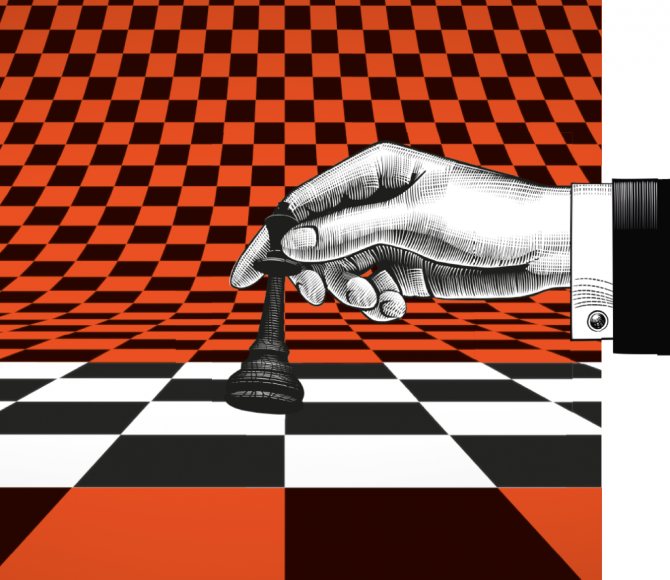
Think like a judge
Coming to court, any participant in the process must understand that within its framework it is necessary to act quickly, in a timely manner and in such a way that the proceedings are as comfortable as possible for the judge.
It is a mistake to think that court is a competition. From the judge's point of view, the process is a problem that must be solved. And the one who reveals to the judge how best to solve this problem wins the case.
Therefore, lawyers who present their positions on paper do so in such a way that their texts look like a draft of a future judicial act. They are more successful. Only when the wording gets the proper form will we be able to see it in the final decision, since they are often reprinted. This type of work by a lawyer saves the judge’s work, which means it makes it more comfortable.
Speaking in general about the need to constantly save time, which is due to the number of disputes that courts consider every day, we must take into account that this leads to the need for a quick decision.
When there is no physical opportunity for a deep assessment of the entire situation in a dispute, not a rational, but an intuitive method of decision-making begins to work more often. Of course, this does not at all negate the fact that the evidence is being studied. However, they are not studied as if they were originally presented.
And here the main goal of your documents and words can be formulated: to show the fairness of your demands from the very beginning. Only when the judge internally agrees with you will the final decision be in your favor.
For this reason, to succeed in a lawsuit, you must first of all see the dispute through the eyes of the judge, and you should speak in such a way that he perceives your words as his own.
Don't make the judge's job more difficult
To be heard, it is important to keep your message simple. Sometimes it’s even indecently simple, because that’s how you understand. Reduce your thoughts to concise phrases both in text and in speech.
Research shows that a person’s “operative” memory can hold no more than seven words in a row.
Do not fill your speech with empty content: do not mention facts that are already known from your claim. And don’t drag out your performance for 10-15 minutes: after all, attention usually dulls after 5 minutes.
This also applies to studying documents. The time spent should be commensurate with the complexity of the case. And if the judge spends more energy on the analysis than planned, he is unlikely to be attentive to all the details set out in the statement. Let your words sound, for example, like this: “We concluded an agreement this year, transferred money to them, and they deceived us.” The judge will ask for evidence and you will present it.
As a clear illustration, we can cite the tax case against Mikhail Gutseriev in 2007-2008. It was possible to observe how procedural opponents worked differently. So, unlike the tax authorities, the company’s lawyers chose the tactics of a corrosive and lengthy process. Because of this, petitions were constantly filed, speeches followed speeches, and meetings followed meetings. Only after six months of hearings did the final hearing finally arrive. The study took place all day Friday.
The speeches of ten representatives of RussNeft ended late in the evening, and only at the end the floor was given to the tax authorities. On their part, everything turned out to be much more concise. The inspection representative, without wasting words, handed the judge a new document, and the judge took it. Everyone expected that there would now be a motion to resume the examination of the evidence, then the debate would begin again, and they would have to sit at the meeting for another week. But the tax authorities submitted their statements in the debate in writing. “The court remains to make a decision!” – the judge announced then, and the decision was made in favor of the inspection.
The inspection not only presented a sufficient amount of evidence, but also created psychological conditions for the decision to be in their favor, at least in the fact that the representatives were able to win over the court, which their opponents did not do.
The famous Russian lawyer Anatoly Koni said: “Litigators should not forget that the court, in a certain respect, is a school for nations, from which, in addition to respect for the law, lessons should be learned about serving the truth and respect for human dignity.” And thanks to our advice, you will also receive lessons in a properly structured speech that your interlocutors listen to. And this is often the first step towards a successful outcome of the case.
https://moritzlaw.osu.edu/students/groups/osjcl/files/2012/05/Shirkey.pdf pp. 598-599 - original source: DONALD E. VINSON, JURY TRIALS: THE PSYCHOLOGY OF WINNING STRATEGY 171 (1986)
What to do if you are being shouted at
If the investigator suddenly begins to raise his voice and put moral pressure on you, you can congratulate yourself on your small victory. In fact, it means that the investigation does not have significant evidence of your guilt, it has reached a dead end.
Sometimes this is just another psychological trick, but more often the investigator shouts and insults for simple human reasons - he was unable to get your cooperation.
Don’t do anything and don’t lash out at mutual insults under any circumstances – just wait until they apologize to you. If he doesn’t apologize, you can safely demand that the investigator be replaced. It is ideal if a lawyer does this by filing a complaint with the official authorities.
